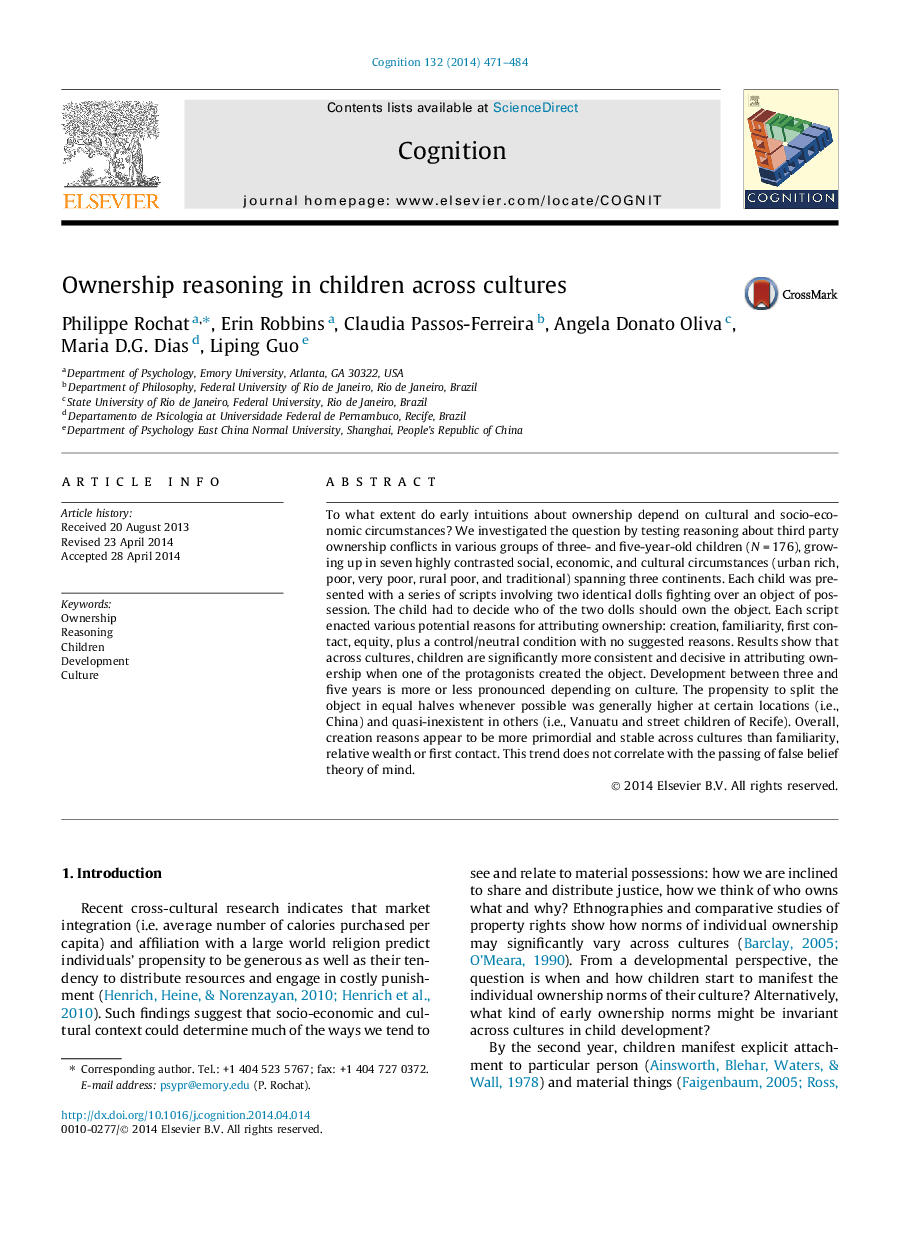| کد مقاله | کد نشریه | سال انتشار | مقاله انگلیسی | نسخه تمام متن |
|---|---|---|---|---|
| 10457537 | 921842 | 2014 | 14 صفحه PDF | دانلود رایگان |
عنوان انگلیسی مقاله ISI
Ownership reasoning in children across cultures
ترجمه فارسی عنوان
استدلال مالکیت در کودکان در سراسر فرهنگ
دانلود مقاله + سفارش ترجمه
دانلود مقاله ISI انگلیسی
رایگان برای ایرانیان
کلمات کلیدی
مالکیت، استدلال فرزندان، توسعه، فرهنگ،
موضوعات مرتبط
علوم زیستی و بیوفناوری
علم عصب شناسی
علوم اعصاب شناختی
چکیده انگلیسی
To what extent do early intuitions about ownership depend on cultural and socio-economic circumstances? We investigated the question by testing reasoning about third party ownership conflicts in various groups of three- and five-year-old children (NÂ =Â 176), growing up in seven highly contrasted social, economic, and cultural circumstances (urban rich, poor, very poor, rural poor, and traditional) spanning three continents. Each child was presented with a series of scripts involving two identical dolls fighting over an object of possession. The child had to decide who of the two dolls should own the object. Each script enacted various potential reasons for attributing ownership: creation, familiarity, first contact, equity, plus a control/neutral condition with no suggested reasons. Results show that across cultures, children are significantly more consistent and decisive in attributing ownership when one of the protagonists created the object. Development between three and five years is more or less pronounced depending on culture. The propensity to split the object in equal halves whenever possible was generally higher at certain locations (i.e., China) and quasi-inexistent in others (i.e., Vanuatu and street children of Recife). Overall, creation reasons appear to be more primordial and stable across cultures than familiarity, relative wealth or first contact. This trend does not correlate with the passing of false belief theory of mind.
ناشر
Database: Elsevier - ScienceDirect (ساینس دایرکت)
Journal: Cognition - Volume 132, Issue 3, September 2014, Pages 471-484
Journal: Cognition - Volume 132, Issue 3, September 2014, Pages 471-484
نویسندگان
Philippe Rochat, Erin Robbins, Claudia Passos-Ferreira, Angela Donato Oliva, Maria D.G. Dias, Liping Guo,
